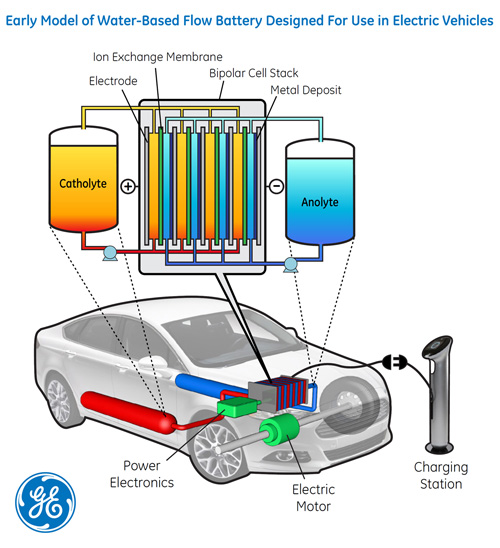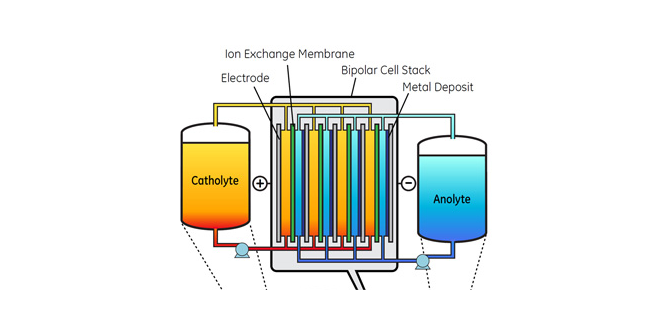It sounds like an intriguing idea: a new type of battery that uses water-based solutions of inorganic chemicals that can supply high energy density by ferrying more than one electron at a time. Scientists at GE Global Research and Lawrence Berkeley National Laboratory are working on such a system, which they call the a “flow” battery, because the discharge and recharge occurs in electrochemical cells that stand apart from the energy storing tanks, which makes them safer.
The research is part of the DOE’s ARPA-E RANGE program, which has challenged America’s scientists to develop an EV battery that delivers three times the range for a third less cost than current designs (and, by the way, avoids thermal runaway and is immune to catastrophic failure). Grigorii Soloveichik, the leader of GE’s flow battery project, says he thinks they can exceed the DOE’s 240-mile range goal.


No details of the potentially revolutionary new technology are on offer at the moment, but engineers from the GRC and Berkeley Lab team say that they plan to develop a working prototype and “demonstrate feasibility” of the concept over the next year.
Source: GE



















































